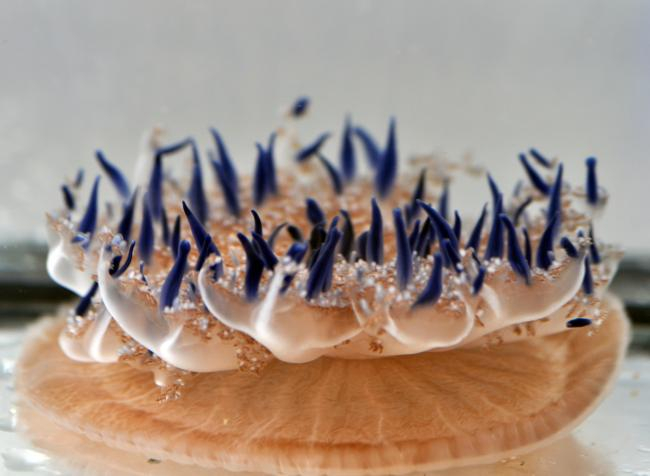Background
Achieving food and nutrition security (FNS) in the Anthropocene is one of the most important challenges facing humanity today. Solutions will require synergies from different knowledge sources and actors, across local and global scales. In the fisheries sector, the rise of aquaculture over the last decades has caused both concern and hope. The current monoculture of fed species such as finfish and crustaceans, which depend on fishmeal and fish oil, repeats the pattern of market-driven environmental degradation occurring in intensified agricultural systems. Yet the ecological and environmental impacts of aquatic food production are generally lower, when compared to terrestrial food systems, particularly per unit output of animal protein. However, to rise to its full potential, in terms of enhancing resilience of the global food systems, the aquaculture sector needs to find reliable alternatives for fishmeal and fish oil (independent from terrestrial systems), focus on the culture of lower trophic level species, and implement ecosystem-based production practices such as integrated multitrophic aquaculture (IMTA). The aquaculture sector is in a critical phase for developing innovative solutions and for making sure that solutions are inclusive and address long standing issues of socioeconomic inequalities. The suitability and potential success of any solution will be largely determined by place-specific ecological conditions and institutional settings. We will therefore draw on our expertise in the natural and social sciences to investigate distinct but linked solutions to foster sustainability in aquatic food production.
The project `Food for the Future´ (F4F) funded by the German Federal Ministry of Education and Research (BMBF), within the strategic funding-line `Agricultural Systems of the Future´ seeks innovation to meet imminent global nourishment challenges. Along this mission, ZMT is part of an interdisciplinary consortium that explores the potential of novel food resources (e.g. algae, jellyfish and insects), new technologies (e.g. lightweight design and UV-LEDs) for urban food production and scenarios of institutional change, to achieve more sustainable FNS. Under the F4F framework, ZMT focuses on marine food resources and contributes two lines of research namely : (1) institutional evolutions in aquatic food production, and (2) the culture of lower trophic level jellyfish as an alternative resource for more efficient protein supply. The first component is co-implemented by the Work Group Institutional and Behavioural Economics and the Work Group Development and Knowledge Sociology; while the second component is implemented by the Work Group Ecophysiology and Experimental Aquaculture. Importantly, we engage with actors in the tropics which is an important area of intensification in marine and aquatic food production.
Research focus
The institutional evolution component focuses on how formal and informal institutions have changed across different scales as the fisheries sector in the province of Bulacan, Philippines shifts to a dominance of aquaculture production. In this component, we investigate socio-economic and environmental drivers of institutional change, unpack the complexity of diverse and interacting institutions in aquatic food production, and draw on empirical findings to develop future institutional pathways in aquatic food systems under a no-land and a no-trade scenario. This study applies a qualitative approach and includes the use of semi-structured interviews, participant observations, and policy analysis involving a diverse range of actors in the Philippines. The case study area has undergone shifts in food production practices due to changes in environmental conditions including saline water intrusion to former rice farms. It is also near highly urbanized areas where market demand is high. Among other factors, these have led to the expansion of aquaculture, and provide a suitable setting to investigate institutional change. The insights that will be generated from this research are expected to contribute to identifying institutional leverage points for sustainability in aquatic food production. The objective of the natural science component is, to take advantage of the highly abundant, yet largely untapped jellyfish biomass. The nutritional value of different jellyfishes proved to be of similar quality as seafood in general. Hence, low trophic level jellyfish could provide a novel, more sustainable resource of essential nutrients for human diets and animal feeds. Next to assays investigating the nutritional value of different jellyfish species, this research will also deal with the technical challenges, linked to the controlled culture of jellyfishes in aquaculture systems. Moreover, latest LED-lighting technology will be tested to culture photoactive jellyfish species in urban polyculture systems, integrated with the other organisms that are studied within F4F. The project is expected to contribute social and technical approaches to addressing food and nutrition security and environmental challenges in aquatic food systems.
| Project Partners |
|---|
|
Research focus I – Organisms: IGZ – Leibniz Institute for Vegetable and Ornamental Crops, ZMT – Leibniz Centre for Tropical Marine Research, ATB – Leibniz Institute for Agricultural Engineering and Bioeconomy Research focus II – Urban Bio-Spaces: IAP – Fraunhofer Institute for Applied Polymer Research IAP, Polymeric Materials and Composites PYCO Research focus III – Smart Nutrition: TU Wildau – Technical University of Applied Sciences Wildau, DIfE – German Institute of Human Nutrition Research focus IV – Social Science: IGZ – Leibniz Institute for Vegetable and Ornamental Crops, ZMT – Leibniz Centre for Tropical Marine Research, HU – Humboldt University Berlin, FUB – University Berlin Further Collaborations: OSRAM – Opto Semiconductors GmbH, InnoMat – InnoMat GmbH, TU – Terra Urbana Umlandentwicklungs-GmbH, ADM – Wild Europe GmbH & Co. KG |





